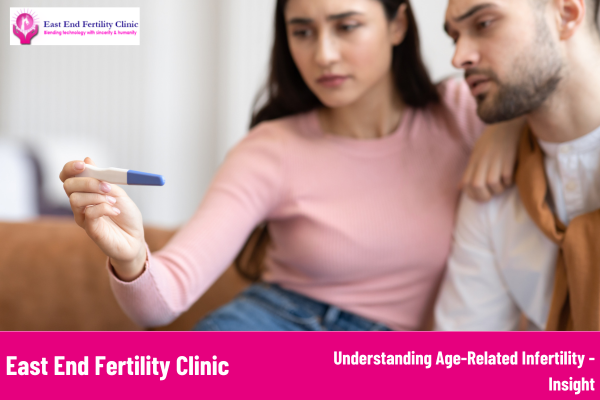Age is one of the most critical factors influencing a couple’s ability to conceive. As individuals age, the chances of achieving a successful pregnancy naturally decline, leading to what is known as age-related infertility. Dr. G.B. Dutta, a renowned infertility specialist in Kolkata, provides expert insights into how age affects fertility and the options available for couples facing these challenges.
How Age Affects Female Fertility
Women are born with a finite number of eggs, and as they age, both the quantity and quality of these eggs decline. This decline becomes more pronounced after the age of 35, and by the time a woman reaches her 40s, her fertility has significantly decreased. Several factors contribute to this age-related decline:
- Diminished Ovarian Reserve: The ovarian reserve refers to the number of viable eggs a woman has left. As age progresses, the ovarian reserve diminishes, reducing the chances of natural conception.
- Decreased Egg Quality: In addition to the reduced quantity, the quality of a woman’s eggs also declines with age. Older eggs are more likely to have chromosomal abnormalities, leading to a higher risk of miscarriage and genetic disorders.
- Irregular Ovulation: Age can also lead to irregular menstrual cycles, which may result in inconsistent ovulation. This irregularity further complicates the timing of conception, making it more challenging to achieve pregnancy.
How Age Affects Male Fertility
While men do not experience a complete cessation of fertility like women do with menopause, male fertility does decline with age. Key factors affecting male fertility include:
- Decreased Sperm Quality: As men age, the quality of their sperm diminishes. This includes a reduction in sperm count, motility (movement), and morphology (shape). Poor sperm quality can make it more difficult for sperm to fertilize an egg.
- Increased DNA Fragmentation: Older men are more likely to have sperm with DNA fragmentation, which can lead to a higher risk of miscarriage and developmental issues in the offspring.
Treatment Options for Age-Related Infertility
Dr. G.B. Dutta emphasizes that while age-related infertility presents challenges, there are several treatment options available:
- In Vitro Fertilization (IVF): IVF is one of the most effective treatments for age-related infertility. It involves retrieving eggs from the ovaries, fertilizing them with sperm in a laboratory, and then transferring the resulting embryos into the uterus.
- Egg Donation: For women with severely diminished ovarian reserve or poor egg quality, using donor eggs can significantly increase the chances of a successful pregnancy.
- Sperm Donation: In cases where male fertility is compromised due to age, sperm donation may be considered.
- Fertility Preservation: For individuals who are not ready to conceive but are concerned about age-related infertility, options like egg freezing and sperm freezing allow for fertility preservation.
Conclusion
Age-related infertility is a common issue that affects many couples, but it is not insurmountable. With the right guidance and treatment, the chances of achieving a successful pregnancy can be significantly improved. Dr. G.B. Dutta, a leading infertility specialist in Kolkata, is dedicated to helping couples navigate the challenges of age-related infertility and achieve their dream of parenthood.
For personalized advice and treatment options, schedule a consultation with Dr. G.B. Dutta to explore the best path forward for your fertility journey.

